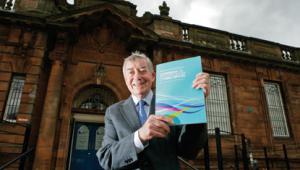The silence is deafening. Amidst the gently developing election ‘noise’ in Scotland where party manifestos are now beginning only slowly to emerge, a little known independent inquiry (the Christie Commission) is quietly carrying out its work on the future delivery of public services.
The Commission, which will report to the new Scottish Government in July, has just completed its evidence phase. CIPFA and all 32 local government directors of finance in Scotland have submitted their comments in a joint response that is designed to ensure that any future debate of reform will focus upon the linked areas of funding and sustainable public services.
CIPFA and the directors’ submission departs from what might be the expected script. Rather than proposing say, protection of local government funding, we draw attention to the historic formula for calculating health funding and also to the separate formula to calculate local government funding. Both systems are input based.
Our conclusion is that the present system of funding public services does not support delivery of better outcomes in Scotland and there is a disconnect between these historic but separate systems and the actual achievement of public service outcomes. This cuts right to the heart of current political election debate and is not necessarily what politicians want to hear, most of whom are already proposing some form of limited, but different, public service reform.
But the submission goes even further. It proposes that the present input-based approach to distributing more than £20bn of public money will have to be replaced with a more holistic means of funding our key public services. The submission also specifically rejects the traditional calls for sector budget protection whether from politicians or interest groups.
It recognises that demand for public resources will always outstrip supply and that protecting major blocks of the Scottish budget does not contribute to the delivery of better outcomes. The call is for our efforts to go into ensuring that available funding (irrespective of present sectoral interests) is redirected to ensure that the right funding gets to the right place and enables our public services to deliver outcomes whether at national or local level.
Central to this vision is the design of public services that are sustainable. In other words ‘future proofing’ the level of services that later generations will be expected to fund. Easy to say, but compelling evidence is provided from the calculation of a funding gap of £2.5bn in real terms for local authority services alone by 2015/16.
Part of the solution offered by CIPFA and the directors is the need to redirect public resources now to the preventative and early year’s stages where intervention reaps later social benefits. The means to achieve this sits not only with a new resource allocation system but also with the proposal to link resource allocation to locality reform by importing the best of the ‘Total Place’ initiative from England and supporting any locality reform with longer-term financial planning and budgeting on an outcomes basis.
Many of these proposals from CIPFA and the directors of finance, of course, require leadership at political level and the colour (or colours) of that leadership will not be known until after 5 May. But through the work of the Commission, the challenge will be for the politicians to embrace the recommendations by CIPFA and the directors of finance.
If the CIPFA proposals are in fact translated into recommendations by the commission, it could be that the current silence is broken, not by politicians, but by the noise from the finance professionals who are leading the way to reform.
Don Peebles is policy and technical manager at CIPFA in Scotland











